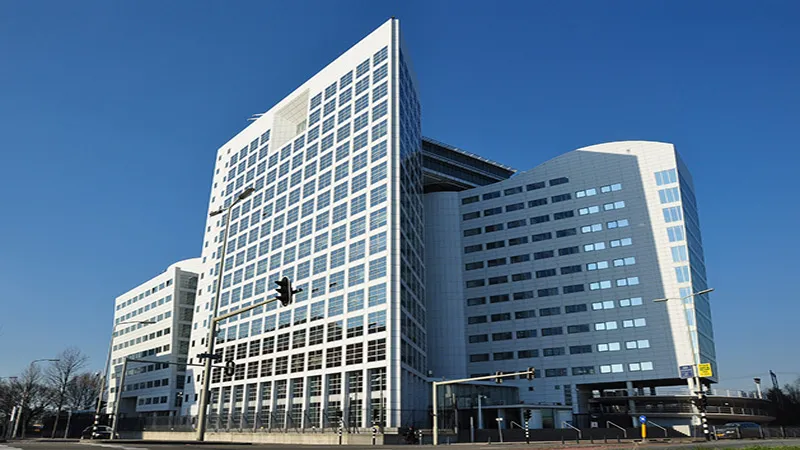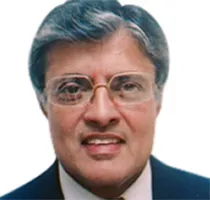
The decision by three African countries — Burundi, South Africa and Gambia — to withdraw from the International Criminal Court (ICC) in the last week of October 2016 has come as a big blow to the organisation. So far, no member country has left the ICC. The development was, by no means, sudden. Criticisms of the ICC have been building up for quite some time.
The ICC was created in 1998 with much fanfare after the adoption of the Rome Statute by 124 countries. Thirty four of them are from Africa. The objective of the organisation was to investigate war crimes, genocides and crimes against humanity all over the world. The functioning of ICC in pursuing these noble goals has unfortunately been deeply flawed.
< style="color: #163449;">Question of perception
Many Africans feel that the ICC is biased against their continent. The Gambian President has called it the "International Caucasian Court for humiliating the Africans." This perception is bolstered by the fact that nine of the ten situations examined by the Court are from Africa. Since it began its operations in 2002, the Office of the Prosecutor has brought charges against 31 individuals and all of them are African.
The election of Ms. Fatou Bensonda, a Gambian national as the Chief Prosecutor of ICC in 2012 has not assuaged the critics. She has been trying new initiatives to enlarge the mandate of the ICC. She wants cases opened for other crimes like illegal exploitation of natural resources, arms and human trafficking, terrorism, financial crimes etc. But these initiatives are not going anywhere. The one exception is the sentencing of a Malian Islamic extremist on charges of destroying cultural heritage sites in Mali which happened during the crisis in that country in 2014 when Ansar Dine militant extremists controlled half the country.
< style="color: #163449;">Flawed structure and procedure
There are three routes through which ICC opens cases. The first is by consent of member states. The countries themselves bring up the cases. The second is when ICC takes up a case suo moto in a member state without formal approval of that government. The third is by a referral by the United Nations Security Council (UNSC). Examples of this are those of President Omar al-Bashir of Sudan and Muammar Gaddafi of Libya. Neither of these countries is a signatory to the Rome Statute. This method seems to be the most egregious since three of the five permanent members of the UNSC (USA, China and Russia) are not members of the ICC. This smacks of double standards of the highest order. They refused to join ICC because it questions their sovereignty. However, they have the power to refer cases from other countries to the very same organisation.
< style="color: #163449;">Immunity and protocol issues
South Africa had been an enthusiastic supporter of the ICC. In 2015, they had to face a serious diplomatic issue. President al-Bashir of Sudan was in South Africa as an invitee for the African Union (AU) Summit. Since there was an arrest warrant against him issued by the ICC and South Africa was a member, it was argued that the government should arrest him and hand him over to the Court. At their insistence, a local South African High Court even directed the government to prevent al-Bashir's special aircraft from taking off. However, the government quoting diplomatic immunity allowed the aircraft to leave. Since that incident, South Africa has been considering the option of withdrawing from the ICC so that their diplomatic outreaches are not affected.
India faced a similar, but less critical, situation when al-Bashir visited New Delhi for the India-Africa Forum Summit in October 2015. However, since India is not a member of the ICC, the question of an ICC request for an arrest did not arise.
The case of President Uhuru Kenyatta of Kenya is another complicated issue. The ICC had initiated a case against him for instigating violence among rival factions after the presidential elections of 2008.Trying a sitting President has, however, proved to be an impossible exercise.
Apart from South Africa, Gambia and Burundi who have announced their desire to withdraw, there are others who may follow suit. Prominent among them are Namibia and Kenya. The fear at ICC is whether this will lead to a domino effect. Earlier this year, the African Union had indicated a mass withdrawal of countries. Fortunately for the ICC, countries like Nigeria and Botswana are opposed to such a mass exodus.
< style="color: #163449;">African solutions to African problems
This is the current trend in African politics, particularly after AU adopted the Africa 2063 Vision Document. Many Africans argue that such crimes should be handled by Africans themselves. In the past, they may not have had the political will or the organisational capabilities. However, today’s Africa is different. The case of the former Chadian President, Hissene Habre is an ideal example. In May 2016, a special AU court successfully prosecuted and sentenced him to life for crimes against humanity that he committed during his presidency. This was a great bench-mark that Africa has set for itself. Nonetheless, prosecuting sitting Presidents and high officials has been rejected by the AU on grounds of immunity.
If a majority of African states pulls out, the ICC will lose its credibility and relevance. It may be high time for the organisation to introspect and reform itself in consultation with the Africans and other members particularly from the developing world.
The views expressed above belong to the author(s). ORF research and analyses now available on Telegram! Click here to access our curated content — blogs, longforms and interviews.




 PREV
PREV


